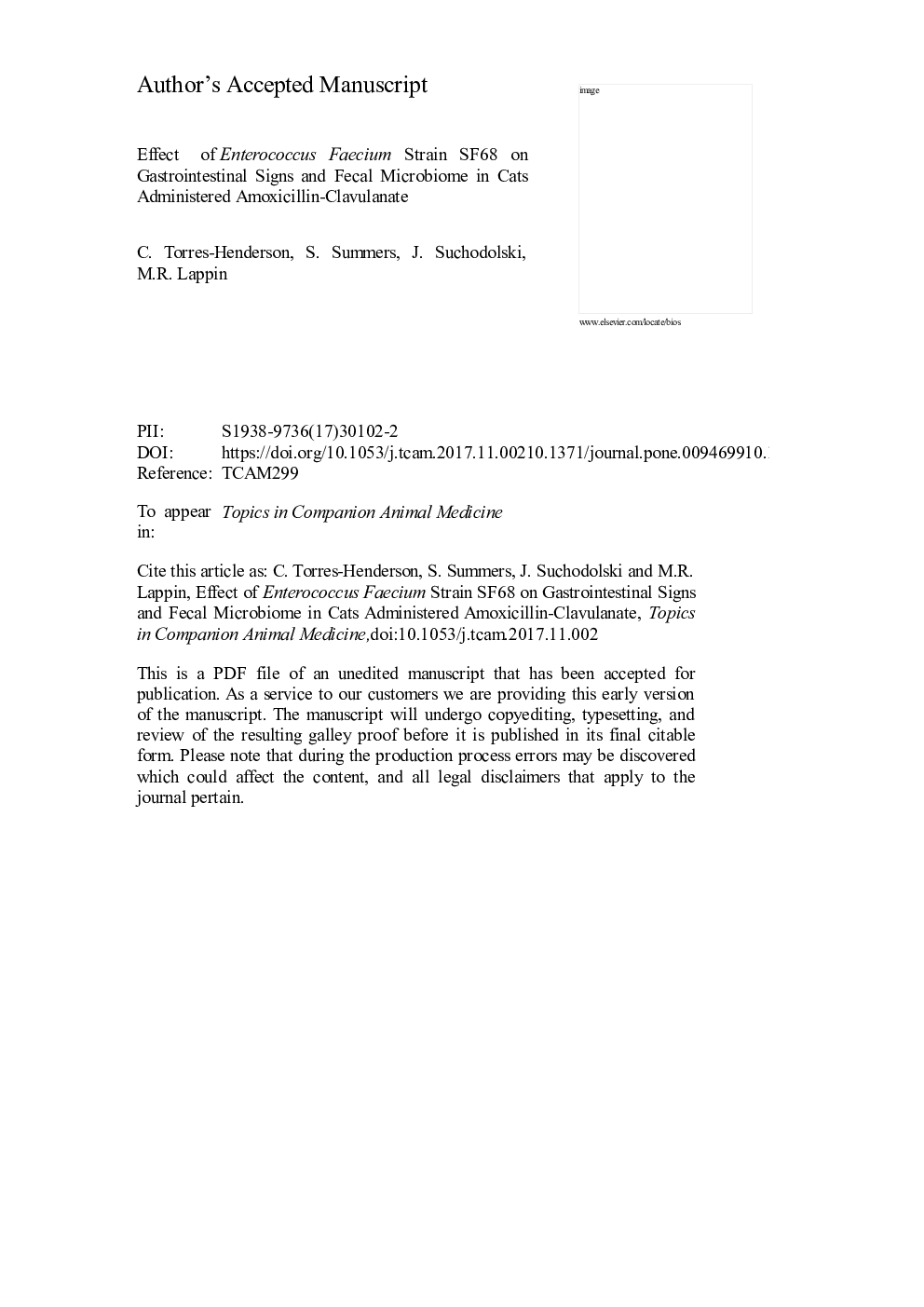| Article ID | Journal | Published Year | Pages | File Type |
|---|---|---|---|---|
| 8485042 | Topics in Companion Animal Medicine | 2017 | 25 Pages |
Abstract
Some cats develop vomiting or diarrhea during administration of some antibiotics such as amoxicillin-clavulanate but how often this occurs and the severity of disease is generally unknown. In people, one of the accepted indications for the use of probiotics is to attempt and lessen antibiotic-associated diarrhea. Enterococcus faecium strain SF68 (SF68; Purina® ProPlan® Veterinary Diets; FortiFlora⢠Probiotic Supplement) is a commercially available probiotic available in many countries that has been shown to lessen diarrhea rates in cats housed in animal shelters. The objectives of this study were to describe the gastrointestinal abnormalities (clinical and microbiome) associated with the administration of amoxicillin-clavulanate to cats and to determine whether feeding SF68 could ameliorate those abnormalities. Laboratory reared domestic cats were administered amoxicillin-clavulanate for 7 days with or without SF68 for 14 days and monitored for vomiting and diarrhea and for changes in the gastrointestinal microbiome before and after antibiotic administration. Fecal scores > 5 on a 7-point scale were detected in 9 of 13 cats (69.2%) fed SF68 compared to 12 of 14 cats fed the placebo (85.7%). Fecal scores of 7 were only detected in the placebo group and when total diarrhea scores were compared between groups for days 1-11, the cats fed SF68 were statistically lower (P = 0.0058). Administration of amoxicillin-clavulanate led to decreased microbiome diversity, but differences between cats fed SF68 or the placebo were not detected. The results show administering amoxicillin-clavulanate orally to cats commonly induces diarrhea and alters the gastrointestinal microbiome, and that feeding the probiotic SF68 can lessen some associated clinical abnormalities.
Related Topics
Life Sciences
Agricultural and Biological Sciences
Animal Science and Zoology
Authors
C. Torres-Henderson, S. Summers, J. Suchodolski, M.R. Lappin,
